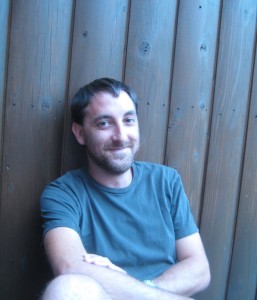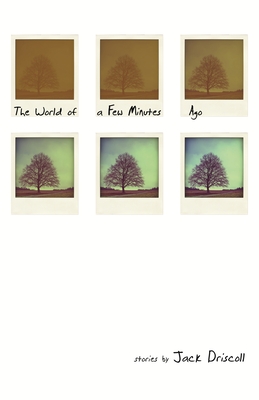 People tell me that I am a poetic writer.
People tell me that I am a poetic writer.
My response to this characterization varies from Thanks! to What does that mean? to Yes, my novel did sell like poetry to I want people to love my work in the way that poetry lovers love poetry, desperately and a bit dangerously, gripping the pistol under the pillow with one hand and the childhood stuffed rabbit with the other.
But what, really, does this cross-genre accusation imply? It’s meant as praise (I’m fairly certain), but wary praise, as if I’ve stumbled into a neighbor’s backyard party, where I’m welcome as long as I limit myself to the potato salad. It also suggests that there is an unspoken set of rules that govern each type of writing—a set of values rooted in aesthetics but also race, class, even gender. If you doubt this, consider how often you’ve heard the phrase “muscular prose,” and how many times—if ever—you’ve heard the term “muscular poetry.”
As writers and as readers, we sometimes have a reluctance to drift too far from shore without reliable references to help us navigate our new surroundings. Categories are the high, clear points on the map, the ones that we can find quickly when we are nervous or lost. But what comforts us in these moments can also limit us—or worse, cause us to place limitations on others. Those of us who teach writing need to be especially attentive to the way we critique our students, to the language that we use to describe their work. How often are we encouraging them to take risks and create their own language for their work, one that is not poetic or prosaic, but something truly distinctive to their own sensibility? And how often are we telling them—even inadvertently—to return to safer shores?
*
The academic world of creative writing continues to grow, but at the same time, in many ways, it is becoming more compartmentalized. People apply to MFA programs as a poet, as a fiction writer, etc., pledging allegiance to one strand of DNA over another. Some of this is function necessary to run institutions—we need to be able to predict how many students will be studying with the poetry teachers, how many with the nonfiction teachers, and so on, to spread the work equitably and to give each student relatively equal access to their professors. But that same bureaucracy can create its own set of meanings, and not necessarily for the better, if students define themselves primarily in opposition to the other genres, rather than as a community of writers.
 It was this belief in the benefits of multi-genre conversation that led to the anthology Lit From Within. Our goal for this collection of essays about writing was—and is—to break down these divisions and remind each other of the ways that writing, of any genre, speaks to all of us. In soliciting essays from writers such as Ron Carlson, Tony Hoagland, Rick Bass and others, Dinty W. Moore and I set out to recreate the kind of exchange that occurs when great writers are put together in the same room, regardless of aesthetic preference or school of thought; to find the connections that emerge when say, a Francine Prose essay on creating fully-realized characters (in fiction) is followed by a Billy Collins essay on creating fully-realized personas (in poetry). As Robin Hemley writes in one of the book’s first essays: “The altar at which I worship is unabashedly dedicated to the ambiguities of artistic expression, regardless of genre.” We write to find ourselves in these ambiguities, embrace them, make them our own.
It was this belief in the benefits of multi-genre conversation that led to the anthology Lit From Within. Our goal for this collection of essays about writing was—and is—to break down these divisions and remind each other of the ways that writing, of any genre, speaks to all of us. In soliciting essays from writers such as Ron Carlson, Tony Hoagland, Rick Bass and others, Dinty W. Moore and I set out to recreate the kind of exchange that occurs when great writers are put together in the same room, regardless of aesthetic preference or school of thought; to find the connections that emerge when say, a Francine Prose essay on creating fully-realized characters (in fiction) is followed by a Billy Collins essay on creating fully-realized personas (in poetry). As Robin Hemley writes in one of the book’s first essays: “The altar at which I worship is unabashedly dedicated to the ambiguities of artistic expression, regardless of genre.” We write to find ourselves in these ambiguities, embrace them, make them our own.
*
One final story. When I was a boy, my parents took me to a party where various kinds of exotic game were on the menu: bear, goose, snake—each one shot or trapped or killed by some other method by one of the flannel shirted men around the table. There were heaps of potatoes, broccoli boiled to a light green. Someone forked a piece of alligator onto my plate. I had just begun to eat it when the host asked me, “So? Does it taste like chicken?”
Even as a boy, I knew that my experience had been circumscribed, narrowed: my vocabulary for eating alligator was now limited to Chicken or Not Chicken. Check the box and move on. If I had known then what I know now—as a writer, teacher, as a person—I would have held up my hand and said to the other guests: Wait. I don’t know what this is. I may never know, but I’ll give it a try. Give me a minute, and I’ll try to find the words.
Kevin Haworth’s novel The Discontinuity of Small Things won the Samuel Goldberg Foundation Prize and was a finalist for the Dayton Literary Peace Prize. His stories and essays have been published in Michigan Quarterly Review, Columbia, Witness, Harpur Palate, Sou’wester, Cold Mountain Review, McSweeney’s Internet Tendency, and many other journals, and he has held fellowships to the Vermont Studio Center, Ledig International Writers House, and Headlands Center for the Arts. He is the co-editor, with Dinty W. Moore, of Lit From Within: Contemporary Masters on the Art and Craft of Writing, published by Ohio University Press this spring.
Further Reading:
- Read a conversation between FWR Contributing Editor Erika Dreifus and Kevin Haworth on Erika’s website.
- Kevin Haworth’s essay “Reading Beyond Genre” appeared in Glimmer Train Bulletin 54.
- Take a closer look at Lit From Within—including reviews, excerpts, and resources—at the Ohio University Press website.





